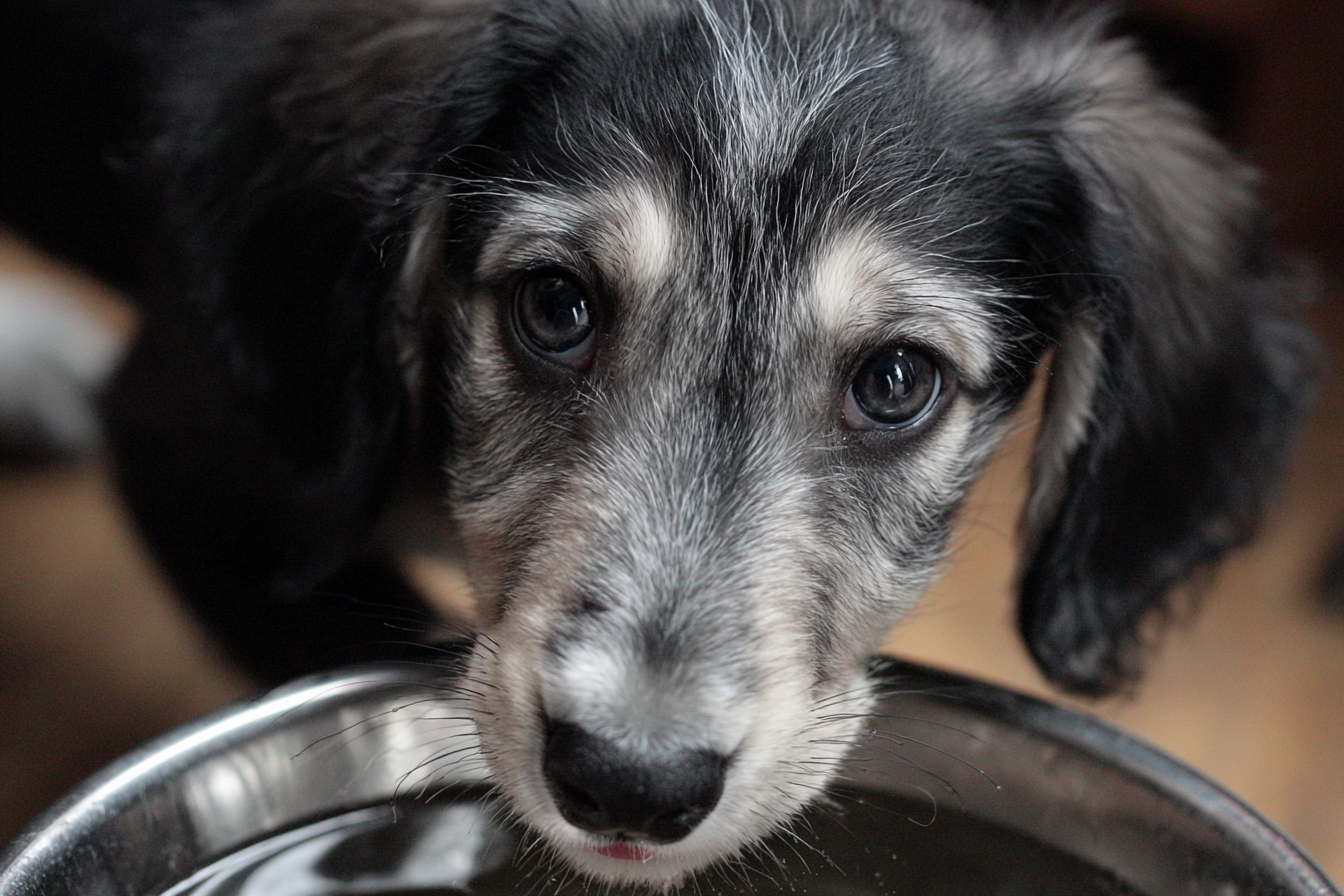Welcoming a Saluki puppy into your home is an exciting journey filled with joy and responsibility. One of the most important ways to support your new furry friend’s health and happiness is through proper nutrition. Salukis, known for their graceful appearance and athletic prowess, have specific dietary needs in their early months to foster optimal growth and development. Understanding what to feed your Saluki puppy and how to maintain balanced nutrition is key to helping them thrive for years to come.
Nutritional Needs of Saluki Puppies
Saluki puppies have distinct nutritional requirements that differ from adult dogs, mainly because they are in a rapid growth phase. Their bodies are building muscle, developing strong bones, and fine-tuning vital organs, which all necessitate a balanced intake of essential nutrients.
Protein is a critical component for Saluki puppies. It supports muscle development and overall growth. High-quality animal-based proteins such as chicken, lamb, or fish are preferable because they supply all the essential amino acids that young dogs need.
Fat is another crucial nutrient, providing concentrated energy necessary to fuel their active nature and support brain development. Omega-3 and Omega-6 fatty acids also contribute to healthy skin and a shiny coat, which is characteristic of Salukis.
Calcium and phosphorus are vital minerals for bone growth. However, the ratio between these minerals must be carefully balanced. Too much or too little can lead to skeletal problems as the puppy matures.
Carbohydrates provide additional energy and help with digestion when sourced from whole grains, vegetables, or legumes. Fiber aids digestive health and helps maintain consistent stool quality.
Finally, vitamins and minerals support immune function, vision, and overall cellular health, making a balanced diet a cornerstone for healthy puppy development.
Recommended Foods and Formula Choices
Choosing the right food for your Saluki puppy involves selecting products that meet or exceed standards set by organizations such as the Association of American Feed Control Officials (AAFCO) for growth. Commercial puppy foods labeled as “complete and balanced” specific for large or medium breeds often suit Salukis well, but always read ingredient lists carefully.
Look for foods that list a high-quality protein source as the first ingredient. Avoid fillers like excessive corn, soy, and by-products. Grain-free options can be beneficial for puppies with sensitivities but discuss with your veterinarian first.
In addition to dry kibble, mixing in wet or canned puppy food can improve palatability and hydration for picky eaters.
For those inclined to homemade diets, a veterinarian or canine nutritionist should advise on how to create balanced meals that fulfill all nutritional requirements. Raw feeding is another option some owners explore, but it requires careful planning and strict hygiene to minimize health risks.
Feeding Schedules and Portion Sizes
Saluki puppies benefit from structured feeding routines that help regulate metabolism and foster good eating habits. Typically, puppies under six months old should be fed three to four times per day.
Dividing their daily calorie needs into these smaller meals prevents overeating and supports steady energy levels throughout the day. As your puppy grows and reaches six months, you can gradually reduce feeding to two meals daily.
Portion sizes depend on the puppy’s current weight, age, activity level, and the calorie density of the food provided. Most commercial puppy food brands include feeding guidelines on the packaging as a good starting point, but monitoring your puppy’s weight and body condition is essential for adjustments.
Regular weigh-ins and consultations with your vet will help you fine-tune portion sizes and ensure your Saluki puppy stays on a healthy growth trajectory.
Vitamins and Supplements
While a well-balanced puppy food generally provides all necessary vitamins and minerals, some Saluki puppies may benefit from supplements, especially in cases of dietary restrictions or specific health concerns.
Common supplements that can support growth and health include:
- Calcium supplements: Only if dietary intake is insufficient, as improper calcium levels can impair bone development.
- Omega fatty acids: Supplements like fish oil enhance coat health, reduce inflammation, and support cognitive development.
- Probiotics: Help maintain intestinal flora balance and improve digestion, particularly during stress or antibiotic use.
- Multivitamins: Occasionally recommended if the diet lacks diversity, but indiscriminate use should be avoided to prevent toxicity.
Always consult your veterinarian before introducing any supplements to your Saluki puppy’s diet to tailor choices safely and effectively.
Transitioning to Adult Dog Food
The time to switch your Saluki from puppy food to adult dog food is an important milestone. Typically, this transition occurs around 12 months of age but may vary depending on the puppy’s growth rate and health status.
Adult dog foods contain different nutrient profiles that are formulated to maintain body condition rather than promote growth. When transitioning, do it gradually over 7 to 10 days by mixing increasing amounts of adult food with the puppy food. This helps prevent gastrointestinal upset.
During this phase, monitor your Saluki’s weight, energy levels, and stool quality closely. If you notice any significant changes, consult with your vet to adjust the diet accordingly.
Signs of Nutritional Deficiencies
Even with careful planning, it’s essential to be alert to possible signs that your Saluki puppy might not be getting adequate nutrition. Some common symptoms include:
- Dull or patchy coat, indicating possible deficiencies in fatty acids or protein.
- Slow or stunted growth, which could be caused by inadequate calorie or mineral intake.
- Digestive issues such as diarrhea or constipation.
- Excessive lethargy or weakness.
- Frequent infections or poor immune response.
- Swollen joints or difficulty moving, potentially signaling an imbalance in calcium and phosphorus.
If you notice any of these signs, consult your veterinarian promptly. Early intervention with dietary adjustments or supplements can prevent long-term health problems.
Supporting a Saluki Puppy’s Vibrant Future
Providing a nutritious, well-balanced diet tailored to the unique needs of Saluki puppies sets the foundation for a healthy, active life. With attention to high-quality proteins, essential fats, balanced minerals, and proper feeding schedules, you ensure your puppy grows strong and vibrant. Remember, regular veterinary check-ups and monitoring your puppy’s condition will help guide dietary choices, making the journey with your Saluki puppy a rewarding and joyful experience full of vitality and companionship.







